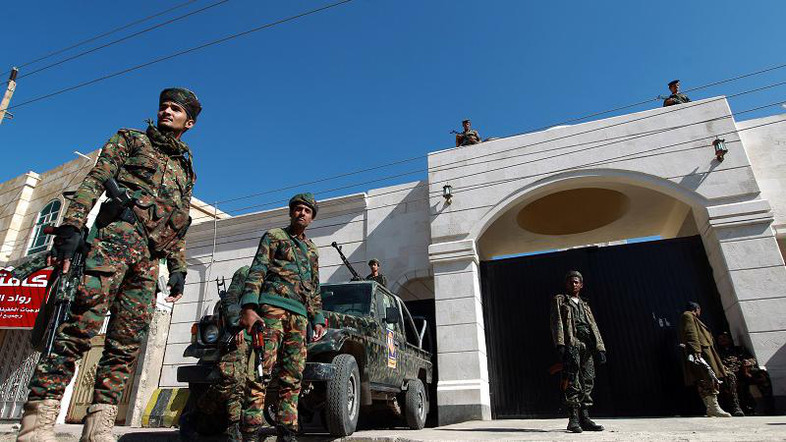Jeddah – Amid the absence of constitutional institutions and with continued violations by insurgents of all international laws in areas under their control, the state security court in Sanaa sentenced journalist Yahya al- Jubaihi to death after he was found guilty of espionage.
Jubaihi was a lecturer at the University of Sanaa and a member of the Arab Journalists’ Association and Yemeni Journalists’ Syndicate (YJS).
According to Houthis news outlet, Jubaihi was accused of establishing contacts with a foreign embassy in Sanaa and sending it reports that endangered Yemen at military, economic and political levels.
The sentence was a surprise to media circles inside and outside Yemen as there was no prior trial and Jubaihi was not given the right to appoint a lawyer to defend him.
Local organizations called upon the UN and Security Council to intervene and pressure the militias to abolish the sentence. The organizations also called on ensuring the security of 21 journalists who had been arrested by militias in different areas of Yemen and had been in prison for over a year and a half.
Yemen Journalists’ Syndicate (YJS), a body that represents journalists, strongly condemned this unconstitutional and extralegal sentence that brought Yemen back to a “totalitarian and despotic era, and caused terror and fear among journalists.”
The syndicate accused the rebels of “targeting the freedom of the press” and called on all local and international human rights organizations to express solidarity with the journalist to reject this ruling and stop “the increasing violence being practiced against the press and journalists in Yemen.”
Yemen’s Foreign Minister Abdulmalik al-Mekhlafi condemned on Thursday the ruling issued by a Houthi-linked court, sentencing journalist Jubaihi to death.
In a series of tweets, Mekhlafi said the death sentence against the journalist revealed the level of crimes being committed by Houthi militias.
“We call the UN’s Secretary-General Antonio Gutierrez, the human rights commissioner and the UN envoy to Yemen Ismail Ould Cheikh Ahmed to move urgently to stop this crime,” he said.
Head of Yemeni National Media Professionals Organization, Hussein al-Soufi said they fear that after this sentence, many detained journalist might face the same fate.
Soufi told Asharq Al-Awsat newspaper that Jubaihi was kidnapped from over nine months ago and didn’t have any trial because of the absence of the justice system in Sanaa.
According to Soufi, the sentence is void because of lack of any information that should entitle the court to issue such a verdict. He explained that the militias violated legal procedures by bringing Jubaihi before the public prosecution only 24 hours after his arrest.
Civil organization said that 21 journalist are endangered in the insurgents’ prisons amid reports saying their health situations were deteriorating.
Member of YJS, Nabil al-Asidi said that the main goal of such sentences was to terrorize journalists and personnel working in the media.
Asidi said that Abdul Malik Houthi’s latest calls to kill all Houthi opposers is life threatening and worrisome especially for the lives of detained journalists who weren’t tried yet. He explained that Jubaihi’s trial was done in secrecy and no legal party or his family was informed of the two sessions held in state security court, which deals with cases of terrorism.
Press watchdogs and human rights groups, including Human Rights Watch (HRW) have been deeply critical of the rebels’ treatment of journalists.
